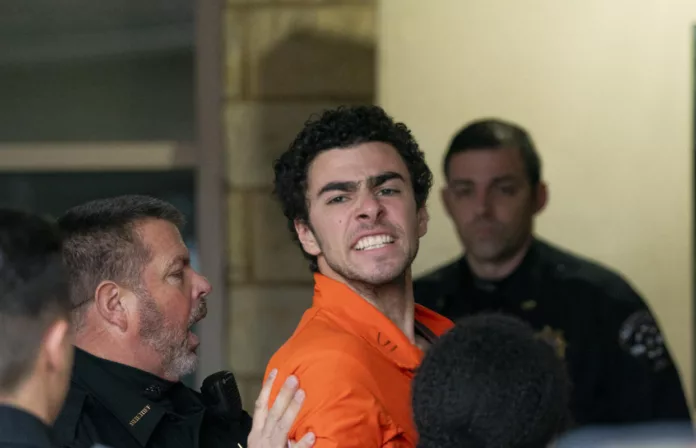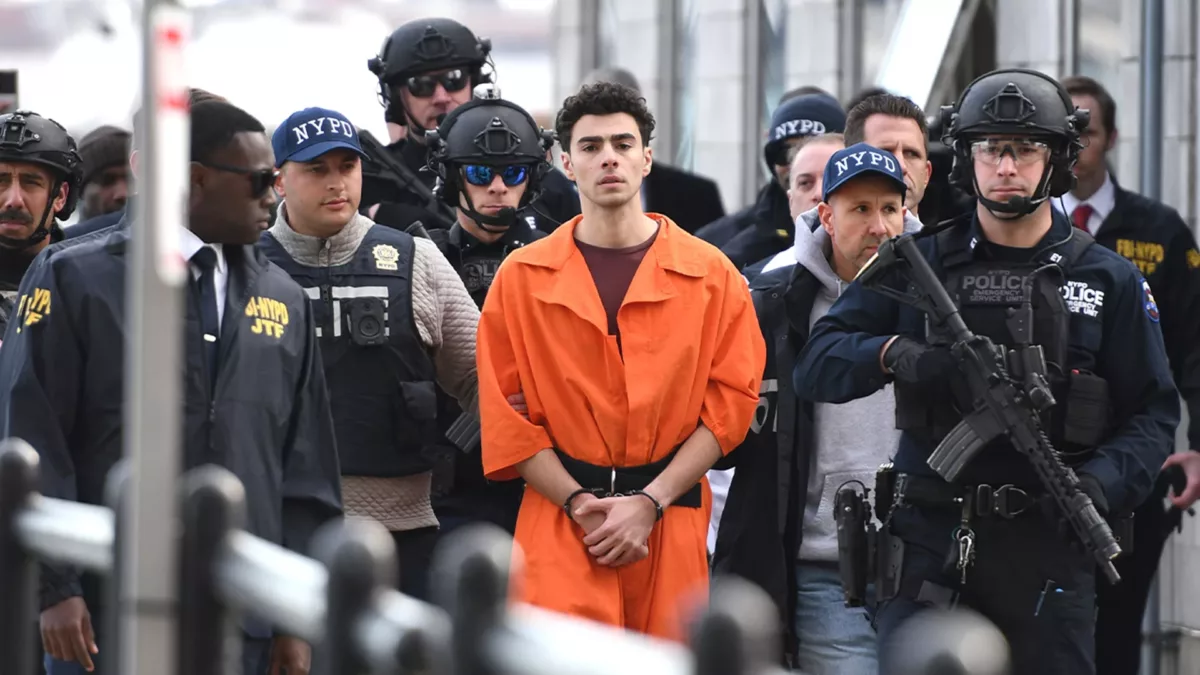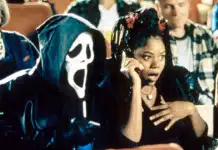
Can Public Sympathy Save Luigi Mangione? Jury Faces Tough Call
The 26-year-old Maryland native stands accused of fatally shooting UnitedHealthcare CEO Brian Thompson on December 4, 2024, in New York City. What makes this case so intriguing isn’t just the evidence—it’s the groundswell of public support Mangione has received, transforming him into an unlikely folk hero for many.
Social media has gone wild with discussions about jury nullification, a rare legal phenomenon where a jury acquits someone despite evidence of guilt, purely because they believe the law itself—or its application—would result in an unjust outcome. Could this be Mangione’s lifeline?
The Case Against Mangione

The evidence stacked against Mangione is significant. Police say they found a 3D-printed gun in his backpack, which matched shell casings at the crime scene. Additionally, his fingerprints were discovered on items discarded near the site of the murder. On paper, the case seems airtight.
But Mangione’s defense attorney, Karen Friedman Agnifilo, claims the system has already prejudged her client. She criticized the highly publicized perp walk and accused officials of turning her client into a “spectacle.” The prosecution, meanwhile, is confident the evidence speaks for itself.
Sympathy vs. Evidence
What’s complicating matters is Mangione’s rising popularity online. He’s been called a “modern-day Robin Hood,” with many sympathizing with his alleged frustration over the tactics used by insurance companies like UnitedHealthcare. Public sentiment has turned Mangione into a symbol of rebellion against corporate greed, a narrative that could make jury selection tricky.
Legal experts are divided on whether jury nullification could come into play. Cheryl Bader, a professor at Fordham University Law School, explains, “Jury nullification is when jurors believe convicting the defendant would lead to an unjust result, so they refuse to do it, even if the evidence supports guilt.”
However, not everyone buys into this idea. “Most people have had bad experiences with insurance companies, but that doesn’t mean they’ll excuse murder,” argues Gregory Germain, a law professor at Syracuse University. The final decision will likely rest on how much sympathy jurors feel for Mangione versus the weight of the evidence.
The Social Media Frenzy
The internet has turned Mangione into a folk hero of sorts. From TikTok videos analyzing his case to Twitter threads dissecting jury nullification, people are hooked. Some even argue that Mangione’s actions, while extreme, highlight frustrations many feel toward the healthcare system.
Former federal prosecutor Neama Rahmani notes, “I’ve never seen an accused murderer receive this much public support. He’s become a symbol for something much bigger than himself.”
What’s Next?
As jury selection begins, both the defense and prosecution will have to navigate a minefield of public opinion and legal scrutiny. Will jurors focus on the evidence or the broader narrative surrounding the case? The answer could set a precedent for how public sentiment influences justice in the age of social media.
One thing is certain: Luigi Mangione’s trial is more than a courtroom drama—it’s a cultural moment. Whether he’s convicted or walks free, the implications of this case will ripple far beyond the courtroom.
- Can Jury Sympathy Save Luigi Mangione? The Trial That Could Rewrite Justice - January 25, 2025
- Trump Blasts Biden, Floats FEMA Shutdown in Fiery North Carolina Speech - January 25, 2025
- John Ratcliffe: The New CIA Director and His Surprising Net Worth - January 24, 2025















